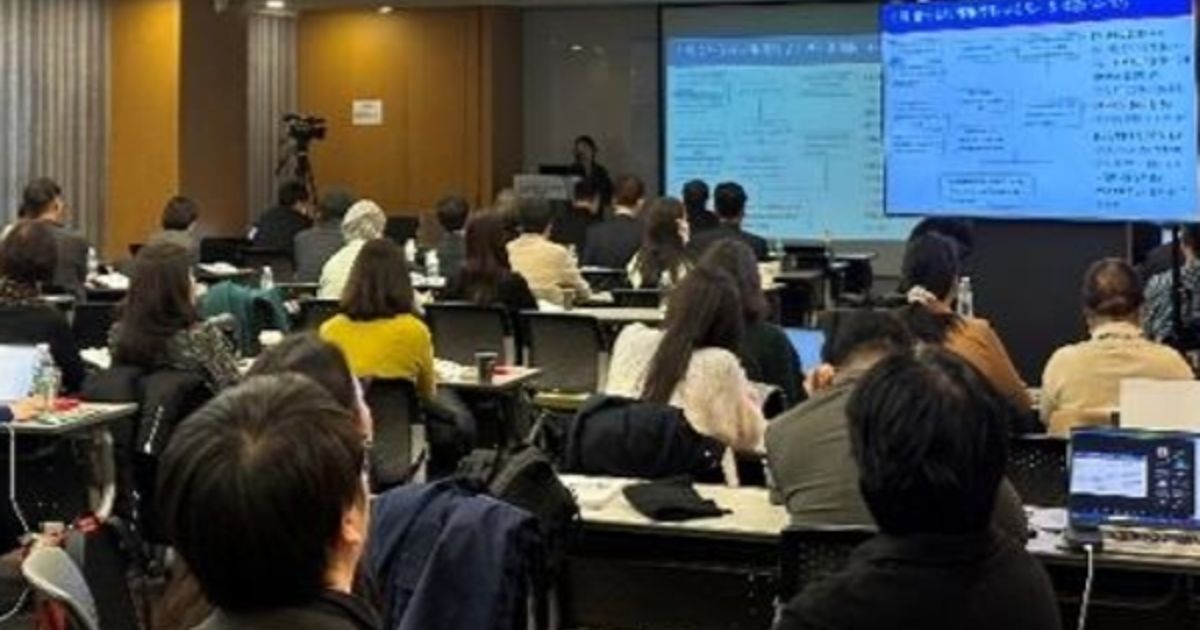RePORT Korea Advancing TB Research
RePORT Korea: Advancing Tuberculosis Research and Collaboration in the Global Fight Against TB
RePORT Korea is affiliated with the National Institute of Infectious Disease (NIID) of the Korean National Institute of Health (NIH), Korea Disease Control and Agency (KDCA). These agencies conduct tuberculosis (TB) research and provide funding for research project to TB researchers and institutes in Korea. In that, they are similar to the intramural and extramural programs at the US NIH.
The signing of a Letter of Intent (LOI) on April 27, 2022, between the U.S. National Institute of Allergy and Infectious Diseases and NIH-NIID paved the way for RePORT Korea to join the RePORT Consortium. This agreement focused on fostering research collaboration for developing vaccines and treatments against infectious diseases, with a particular emphasis on tuberculosis. Around the same time, KDCA launched the 3rd National Strategic plan for TB Control in Republic of Korea (2023–2027), aiming to reduce Korea’s new tuberculosis incidence rate to fewer than 20 cases per 100,000 people by 2027. In step with this, the Korea NIH-NIID created a new R&D roadmap for END-TB, focused on innovations in prevention, diagnosis, and treatment technologies. RePORT Korea has made it a priority to develop new technologies and provide support to shorten the duration of tuberculosis treatment and enhance its effectiveness. Tuberculosis remains a global threat, and we fully understand the importance of international cooperation in sharing strategies and support for TB elimination. Our participation in RePORT gives us a great opportunity to share our research achievements and work more closely together moving forward.
Project Descriptions
COSMOTB (Cohort Study of Pulmonary Tuberculosis), their observational cohort study on active tuberculosis patients in Korea, is in the process of being integrated with RePORT Korea’s activities. Led by Principal Investigator Dr. Jin-Soo Min from Seoul St. Mary’s Hospital, the COSMOTB research network spans 20 general hospitals across Korea. Launched in 2019, COSMOTB focuses on adult active TB patients aged 19 and above, with the primary goal of identifying biological markers that can predict poor treatment outcomes. The study’s timeline is as follows: 2019-2021: Enrolled 1,200 patients; 2019-2023: Continued follow-up to study predictive pathogen- and/or host-based biomarkers for treatment outcomes in drug-sensitive TB patients; 2022-2024: plans are to enroll an additional 1,000 patients to study side effects of isoniazid mono-resistant treatment, risk factors for non-adherence to treatment, and the relationship between treatment modalities and side effects. To support this extensive study, they have implemented an electronic case report system (eCRF) and a comprehensive data management system. This study also engages with the RePORT International Data Harmonization Working Group to discuss data sharing and technical processes.
Since 2022, RePORT Korea also has been collaborating with the De La Salle Medical and Health Science Institute (DLSMHSI) in the Philippines on an international study called K-BOP. This study aims to identify factors that predict TB onset among close contacts of active TB patients. In K-BOP, cohorts A and B, formed by RePORT Philippines have been followed up to assess biomarker candidates for TB onset by analyzing cytokines and mRNA in the blood of 34 patients who developed active TB after close contact with a patient with TB. Additionally, they are planning to analyze the metabolites from TB patients in cohort B and compare them with biomarker candidates which have been studied in Korea. This partnership is set to continue through 2024.
Highlights – New Projects
RePORT Korea is gearing up for the next five years, aligning our activities with the Korean national TB management plan and R&D strategy which is focused on reducing TB incidence and developing strategies to address the growing number of elderly TB cases, as Korea’s population continues to age. In response, RePORT Korea has planned research projects to develop next-generation diagnostic technologies and treatments that will shorten the treatment duration, improve treatment adherence, and reduce side effects.
In the area of diagnostic technology, RePORT Korea will support projects aimed at developing biomarkers to predict TB onset in high-risk groups and biomarkers to assess the effectiveness and prognosis of treatments early on. This will help reduce side effects and shorten treatment duration through personalized treatment approaches.
Additionally, the team is working on a multinational, multi-institutional study to evaluate the performance of diagnostic kits that use genetic testing methods to rapidly diagnose multidrug-resistant TB. Alongside this, clinical trials will assess the effectiveness of shortened treatment regimens for multidrug-resistant TB and study the side effects and factors hindering treatment adherence in patients with latent TB and renal disease. Additionally, RePORT Korea aims to harness extensive datasets from two key sources: Korea’s national health insurance service (NHS) and the tuberculosis integrated management system (TBIS). By analyzing this big data, the organization intends to assess the effectiveness of policies promoting early TB screening, evaluate the cost-efficiency of recently implemented shortened treatment regimens, and investigate the long-term effects of TB treatment on patients. This data-driven approach will provide valuable insights to inform future TB management strategies in Korea. Through this research, they hope to provide scientific evidence for strategies to reduce the socioeconomic burden of TB, shorten treatment duration through early diagnosis, and develop a strategy to address TB in the elderly population.
RePORT Korea is close to securing funding for these research projects over the next five years, with new projects expected to kick off in 2025. They will also support joint collaborative research projects between Korean and international researchers including RePORT colleagues.
Strengths
RePORT Korea has a solid foundation for collaboration with the 20 hospitals participating in the COSMOTB research network. And the NIH, KDCA, one of their key institutions, is a major funder for TB research in Korea, and it leads the research component of the Korea national TB management policy. The TB patient registration database (TBIS) and the National Health Insurance Service (NHS), managed by the KDCA and the Ministry of Health and Welfare, can be linked to conduct large-scale retrospective studies using big data in collaboration with both public and private researchers.
The specimens and bacterial isolates, along with clinical research data collected through RePORT Korea’s projects, are periodically transported, stored and managed using the central biorepository systems managed by Korea NIH. The Human Biobank Information System (HUBIS) manages samples from TB patients (e.g., sputum, blood, urine) through stable storage facilities (high pressure and liquid nitrogen or ultimate low temperature storage).
Challenges
Over the past decade, Korea has seen great success in reducing the incidence of TB through international collaboration on policy. However, this success has led to a sharp reduction in resources for research activities and has created limitations in forming contact cohorts. While the number of researchers in Korea has increased significantly, there is still a lack of opportunities and support for international collaborative research. The various biorepositories available to RePORT Korea were originally designed as independent systems for domestic use, so to share these resources with international researchers within the RePORT Consortium, new legal and administrative frameworks, as well as efficient research methods, need to be developed.
Conclusion
Based on feedback collected at the 2023 RePORT International Annual Meeting in Goa, India, participating countries and researchers suggested key focus areas for RePORT Korea’s research. The survey highlighted three main priorities: investigating subclinical tuberculosis, advancing biomarker research, and improving resource and data sharing practices. Moving forward, they will continue to share updates on RePORT Korea’s research activities and push forward with projects that contribute to the shared goals of the RePORT Consortium. Korea welcomes and encourages active interest and participation of all researchers involved in the consortium.
What's new
World TB Day 2023
world tb day 202324 March 2023WORLD TB DAY, 24 March, commemorates the announcement in 1882 when Dr. Robert Koch discovered the Mycobacterium tuberculosis, the bacilli that causes tuberculosis (TB). This date is an opportunity to highlight research on TB prevention...
Academics, Lab, Leadership
Academic Advancement, Laboratory LeadershipSudha Srinivasan: Dialogues on Academic Advancement, Laboratory Leadership, and Trailblazing Innovations in TB HealthcareSudha Srinivasan: Dialogues on Academic Advancement, Laboratory Leadership, and Trailblazing Innovations...
2022 Annual Meet Cape Town
2022 annual meetCape Town, 7 - 8 September 2022Host Blood Transcriptomic Biomarkers of TB: Diagnosis, Prognosis, and Treatment ResponseProtein Biosignatures in TBBiomarkers of Childhood TuberculosisIdentifying Transcriptional and Inflammatory Changes Related to...





